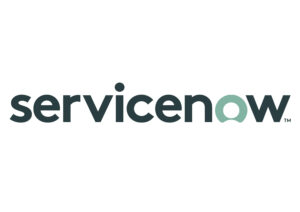The Counter-Intuitive Need for Investment in Economic Turbulence
When budgets are being cut both internally and amongst our customers investing in new systems and solutions is often something that many business will put on hold. However, for field service organisations investing now could be the key to survival…
In the previous feature in this series, we explored the economic challenges the field service industry faces and how the lessons of history can teach us the importance of navigating them effectively.
Now, in the next chapter of this paper, we focus on the need for increased investment in field service systems to address the aspects of maintaining operational effectiveness, reducing costs, optimizing workload, ensuring work-life balance for field service engineers, and delivering delightful customer experiences.
While it may, on the surface seem counter-intuitive to invest in an economically challenging period, as we shall explore in the following chapter is that the inverse is true. Across this section we will delve into this concept, highlighting the value of strategic investments in overcoming challenges and driving long-term success.
Maintaining Operational Effectiveness
Maintaining operational effectiveness becomes paramount for field service organizations in times of economic downturn. This means ensuring that service operations continue to deliver high-quality, timely, and reliable service despite challenging circumstances. To achieve this, organizations must invest in the right tools, technologies, and processes that empower their field service teams to operate at peak performance.
Investing in modern field service management systems can significantly enhance operational effectiveness. Generally, such systems provide the following:
- A centralized platform for managing work orders.
- Dispatching technicians.
- Tracking service progress.
- Capturing critical data for analysis.
Organizations can reduce manual errors, improve response times, and enhance operational efficiency by streamlining and automating these processes. Furthermore, incorporating mobile applications and remote assistance tools can empower technicians to access real-time information, collaborate with experts, and resolve service issues more effectively.


Data usage note: By accessing this content, you consent to the contact details submitted when you registered as a subscriber to fieldservicenews.com to be shared with the listed partner of this premium content ServiceNow who may contact you for legitimate business reasons to discuss the content of this paper.
"Organizations can ensure that their workforce is well-prepared to handle diverse service challenges and deliver exceptional customer experiences by equipping field service technicians with the necessary knowledge and skills..."
In addition to technology investments, organizations should also focus on optimizing workforce capabilities. This may involve investing in training and development programs to enhance technical skills, customer service excellence, and problem-solving abilities.
Organizations can ensure that their workforce is well-prepared to handle diverse service challenges and deliver exceptional customer experiences by equipping field service technicians with the necessary knowledge and skills.
In a world of outcome-based service, operational efficiency can determine between a company flourishing and dying. As the service landscape evolves, organizations increasingly shift from a traditional transactional model to one that focuses on delivering desired outcomes for their customers. This shift places an even greater emphasis on operational effectiveness and efficiency.
Investing in modern field service management systems becomes essential for organizations aiming to excel in outcome-based service. These systems streamline and automate core processes and enable organizations to collect valuable data throughout the service lifecycle.
By leveraging this data, organizations can gain insights into customer needs, identify trends, and make data-driven decisions to optimize their service operations. This, in turn, allows them to proactively meet customer expectations, deliver desired outcomes, and drive customer satisfaction.
Mobile applications and remote assistance tools enhance operational efficiency in outcome-based service.
Empowering field service technicians with these tools enables them to access real-time information, collaborate with experts, and resolve service issues promptly. By minimizing travel time, reducing the need for multiple service visits, and leveraging remote diagnostics capabilities, organizations can optimize their resource utilization, lower operational costs, and improve overall efficiency.
Optimizing workforce capabilities remains essential in an outcome-based service environment. Organizations should invest in training and development programs that equip their field service technicians with the skills and knowledge required to deliver customer outcomes.
This includes technical expertise and the ability to understand customer needs, communicate effectively, and adapt to evolving service requirements.
"Operational efficiency is the critical differentiator that drives customer satisfaction, loyalty, and business success..."
Organizations can ensure efficient service delivery, enhance customer satisfaction, and position themselves as trusted partners in achieving customer outcomes by developing a highly skilled and customer-focused workforce.
The combination of modern field service management systems, mobile applications, remote assistance tools, and a skilled workforce enables organizations to operate at peak performance in an outcome-based service model.
Operational efficiency is the critical differentiator that drives customer satisfaction, loyalty, and business success.
Organizations that can effectively manage their service operations, optimize resources, and consistently deliver desired outcomes will be well-positioned to thrive in the evolving service landscape.
Work-Life Balance for Field Service Engineers
Recognizing the importance of work-life balance for field service engineers is not just a cultural aspect but also holds significant utility, especially in times of economic downturn. While maintaining a motivated and engaged workforce is a desirable goal, tangible benefits come with investing in tools and resources that support work-life balance for field service engineers.
In an economic downturn, organizations face increased pressure to maximize the productivity and efficiency of their workforce.
Field service engineers are critical in delivering exceptional service experiences to customers. By ensuring these employees have an excellent work-life balance, organizations can foster a sense of loyalty and commitment, directly impacting their operational effectiveness and financial performance.
Investing in tools like mobile scheduling applications, remote access to information, and intuitive collaboration platforms can significantly contribute to employee satisfaction and retention.
These tools enable field service engineers to efficiently manage their schedules, access critical information, and collaborate with colleagues and experts, regardless of physical location. By empowering them with such tools, organizations enable field service engineers to balance their work responsibilities and personal lives better.
Additionally, flexible work arrangements, such as remote work options and flexible working hours, can alleviate the stress associated with demanding workloads and enable field service engineers to maintain a healthier work-life integration.
During economic downturns, where the workload may increase due to reduced workforce or cost-cutting measures, providing flexible work options allows field service engineers to adapt to changing circumstances while still meeting customer demands.
This flexibility not only helps prevent burnout but also demonstrates an organization’s commitment to the well-being and satisfaction of its employees.
"In times of economic uncertainty, organizations must go above and beyond to ensure customers remain satisfied, loyal, and engaged..."
Furthermore, maintaining an excellent work-life balance for field service engineers can increase employee loyalty. During economic uncertainties, where job security may be a concern, investing in employee well-being can enhance retention rates and reduce turnover.
Field service engineers who feel valued, supported, and respected by their organization are more likely to remain committed to their roles, go the extra mile for customers, and contribute to the organization’s overall success.
By recognizing the tangible benefits of work-life balance for field service engineers, organizations can create a positive work environment that promotes employee well-being and drives operational excellence.
Investing in tools, resources, and flexible work arrangements demonstrates a commitment to field service engineers’ holistic development and satisfaction, ultimately leading to improved employee loyalty, productivity, and customer satisfaction.
Delivering Delightful Customer Experiences
Customer satisfaction and loyalty are essential business priorities and become even more critical in times of economic uncertainty, where customer churn must be eliminated wherever possible for most service-oriented businesses.
Investing in tools, technologies, and strategies to ensure delightful customer experiences can set organizations apart from their competitors and provide a significant competitive advantage.
Organizations can gather and analyze customer data by leveraging customer relationship management (CRM) systems to gain valuable insights into their preferences, service history, and expectations.
This data-driven approach enables organizations to deliver personalized service experiences that meet or exceed customer expectations. By tailoring their service offerings to individual customer needs, organizations can create a sense of delight and build stronger, long-lasting relationships.
Moreover, investing in customer feedback and sentiment analysis tools allows organizations to capture feedback, identify improvement areas, and promptly address any potential issues.
This proactive engagement demonstrates a commitment to customer satisfaction, which is essential for retaining customers during economic uncertainties. By actively listening to customer feedback and taking action to resolve any concerns or issues, organizations can build trust, enhance customer loyalty, and reduce the risk of customer churn.
Delivering delightful customer experiences fosters customer loyalty and leads to positive word-of-mouth referrals and brand advocacy. Satisfied customers become advocates for the organization, sharing their positive experiences with others, both online and offline.
This positive word-of-mouth can significantly impact attracting new customers and expanding the customer base, which is particularly crucial during economic downturns when acquiring new customers may be more challenging.
In times of economic uncertainty, organizations must go above and beyond to ensure customers remain satisfied, loyal, and engaged.
By investing in technology, optimizing workforce capabilities, implementing proactive maintenance practices, enhancing workload management, supporting work-life balance for field service engineers, and delivering delightful customer experiences, organizations can strengthen customer relationships, reduce customer churn, and drive business growth even in challenging economic times.
Reflective Questions for you to apply the themes discussed here to your own organisation:
#1: What tools, technologies, or processes can we adopt to streamline and automate our field service operations, reducing manual errors and improving overall efficiency?
#2: Why is work-life balance essential for maintaining a motivated and engaged field service workforce, particularly during an economic downturn?
#3: What steps can we take to proactively address the stress associated with demanding workloads and promote a better work-life balance for our field service workforce?
#4: How can we align our customer experience initiatives with our business goals and overall strategy to drive customer loyalty and business growth, especially during economic downturns?
#5: In what ways can delivering delightful customer experiences contribute to reducing customer churn and generating positive word-of-mouth referrals?
Do you want to know more?
If you are already a subscriber you can access the report instantly on the ‘read now’ button below. If the button is showing ‘Join FSN FREE’ please log-in and refresh the page.
If you are yet to subscribe simply click the button below and complete the brief registration form to subscribe and you will get instant access to this report plus a selection of premium resources each month completely free.


Data usage note: By accessing this content, you consent to the contact details submitted when you registered as a subscriber to fieldservicenews.com to be shared with the listed partner of this premium content ServiceNow who may contact you for legitimate business reasons to discuss the content of this paper.


